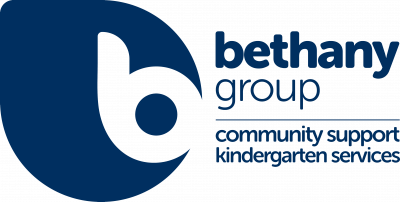Unlimited and undefined by gender
For Bethany kindergarten educator, Kylie, a classroom discussion about careers highlighted that gender bias was influencing the way the children see themselves and their world, even at their young age.
Kylie had initiated the discussion with her Bell Post Hill Kindergarten students after overhearing a conversation in the playground when a child had said “girls can’t be the boss of a school, only boys.”
Eager to use the comment as a springboard for discussion, she put the question to the group:
“What do you want to be when you grow up?”
Eagerly, one boy responded: “A ballerina!” Laughter erupted, followed by a comment, “but boys can’t be ballerinas, only girls can.” A girl then told the group that she wants to drive a big truck and build houses like her dad. Her comment was retorted by another child who said that “girls can’t do that, it’s for boys.”
Only one girl spoke up against the status quo, saying:
“You can be whatever you want to be,
it doesn’t matter.”
Recognising that children make sense of their world through play, and supported by Bethany’s anti-bias curriculum, Kylie and her colleagues began to search for opportunities to embed more positive, gender equitable influences within the curriculum.
To further understand why so many children had formed opinions and ideologies at such an early age, the team sent home a family survey, to gather feedback about how gender had influenced parent’s and guardian’s own life decisions. While many respondents reported they’d been free to make their own career choices, it was evident the female population was more limited by bias, finance and cultural expectations. This survey uncovered many hidden assumptions and values that continue to sustain inequity in our society.
“Culturally I had no choice but to be a stay-at-home wife and mother. To pursue a career was not an option for me.” (Female survey respondent)
“I took over the family business because it was just expected.” (Male survey respondent)
By sharing the anonymous survey findings with families, the team were able to raise awareness of social and cultural influences. The survey provided an opportunity to help educate families that bias can be explicit or subtle, and can be developed unconsciously through interactions with family, friends and media. Furthermore, our own biases can significantly influence and shape our children’s own identities.
Children need to be supported to develop positive self-identities and empowered to make choices in life that are free from bias. Bethany educators like Kylie make conscious choices that create beautiful, inclusive environments where all children are supported to thrive, unlimited and undefined by their gender.
Bethany Kindergarten Services Anti-Bias Curriculum
Supporting every child to have the best start in life, and eliminating barriers to their full participation, is at the core of Bethany’s purpose. One of the ways we achieve these aims is through our anti-bias curriculum, which was introduced in 2017. By removing bias from early childhood settings and creating environments that take an active approach to challenge prejudice and stereotypes, we help children to grow up believing they are unlimited in what they can do and how they can engage with the world.
Families report that when considering kindergarten options for their children they are drawn to the diversity and welcoming environment of a Bethany kindergarten.
With the anti-bias curriculum project as a professional framework, we work together in this increasingly complex world to continually embed, reflect on, implement, evaluate and improve the way in which we educate and connect with our kindergarten children and each other.

